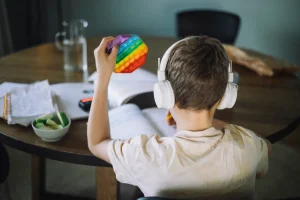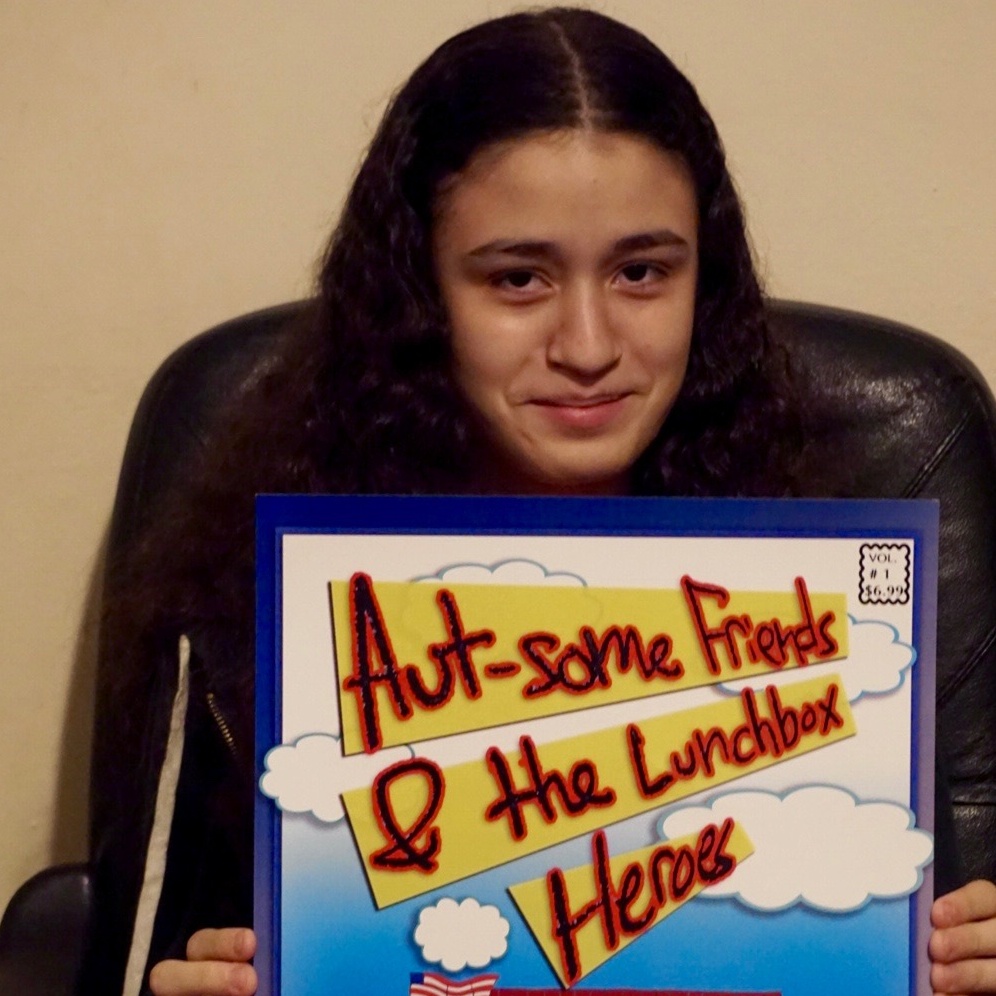
Written by Zach Grossfeld
At 15 years old, Madyson Martinez authored and published a comic book at an age where most kids have yet to push the boundaries of creativity. Aut-some Friends & The Lunchbox Heroes explores Madyson’s experience with bullying at school and the heroes who have helped along the way.
Madyson Martinez, 15 years old, has autism. She wrote a comic book titled Aut-some Friends and the Lunchbox Heroes inspired by her experiences at school. Madyson sketched every piece of artwork covering each page. “I started drawing last year,” she says. “I kept drawing and made it part of the book.”
“Have you been bullied?” I asked. Madyson nodded. “Do kids say mean things to you like in your comic book?” Madyson hesitated. “I wouldn’t want to say any of the things kids say about me,” she said. Quietly, Madyson sat on her living room couch looking downwards, fidgeting her hands as I sat next to her. “I’m sorry,” I said.
The main character, Ari, is also autistic. Ari paints and can brush secret passageways into existence. Ari’s friends also have superpowers, accomplishing feats of magic, memory, and strength. “I gave them superpowers from my imagination,” says Madyson. Along with these powers, each character reveals certain situations that make them uncomfortable, like sudden sounds or extensive eye contact.
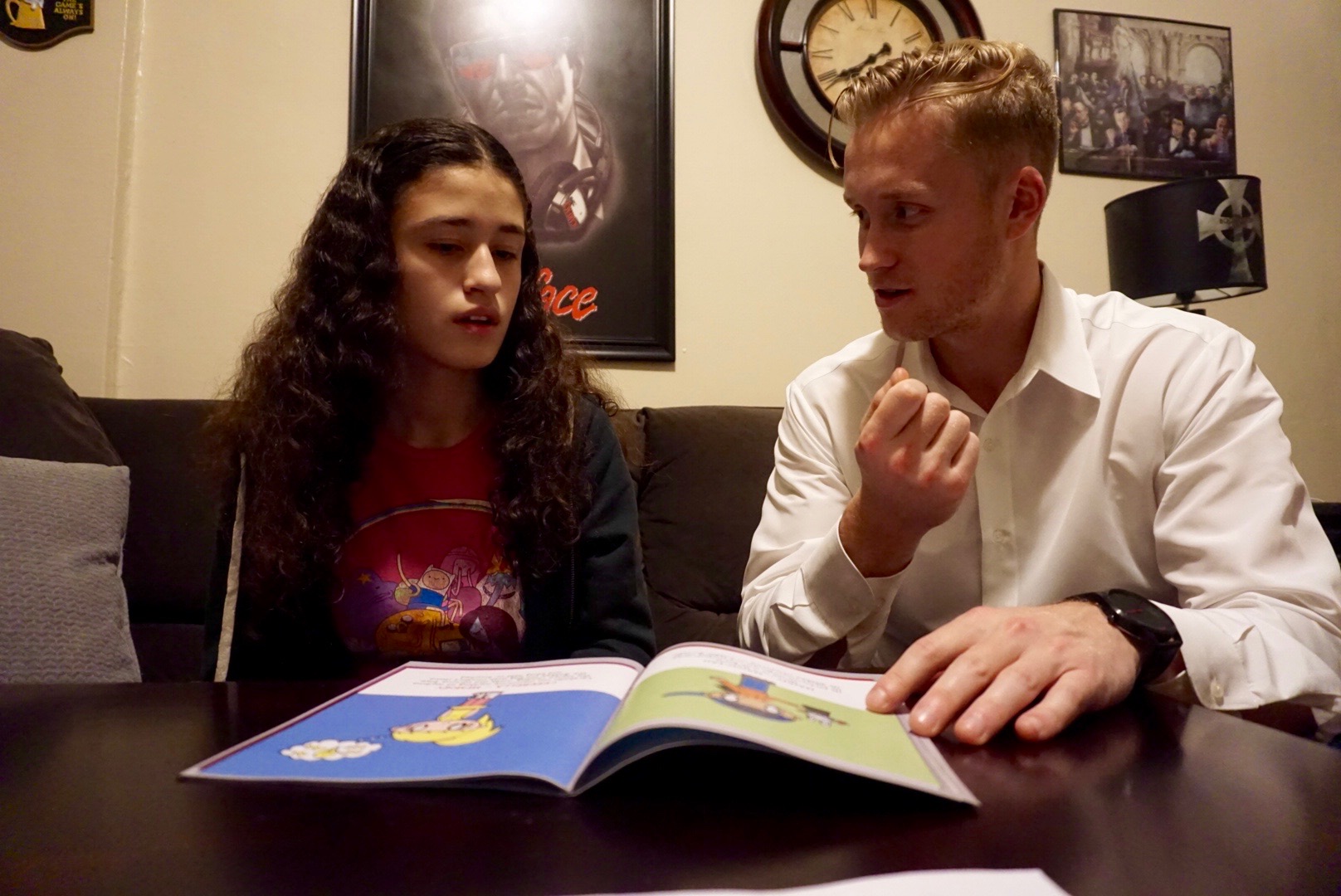
In the book, bullies torment Ari frequently about her clothing and soft-spoken manner. Having a hard time making friends, she takes the brunt of the bullying on her own. In the hallway, one afternoon, a group of strangers stick up for Ari, who she eventually befriends. These superpowered companions, along with the lunchbox heroes, tiny snack sized foods that come to life, can relate to the triggers that make her uncomfortable.
Unafraid, Ari chooses to tell her classmates about her autism and the social disabilities that make communication difficult. After Ari’s revelation, the bullies apologize to her and want to learn more about autism. “I wanted to have an autistic main character to give confidence to other people who are bullied,” says Madyson. As a first-time author, Madyson exhibits a vulnerability that takes years for other writers to harness. “I was nervous because my story was going to be put out there to the world,” she says. “But I was excited because it was creative.”
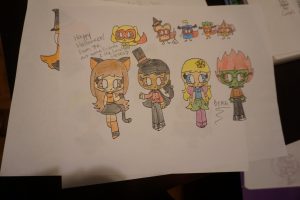
Writing most of the comic book at school, Madyson worked with her teacher, Ms. Lee, who oversaw the progress of the final product. Once Madyson completed the text, she drew most of the artwork at home, sometimes finishing a design in less than ten minutes. A friend of the family, Mike Cruz, performed the digital editing and coloring to add the final creative touches.
Madyson’s father, Dennis Martinez, also served as inspiration for the comic. While I spoke with Madyson, she spoke more freely and comfortably once Dennis sat across from us in the living room. She draws confidence from her father, not normally opening up to a stranger on such intimate topics.
Madyson entered a contest called Big Picture Learning and she won. They paid for the editing,” said her father. “I then started a Go Fund Me account and raised over $4,000 to pay for everything extra like printing and posters.” Watching his daughter express herself brought joy to Dennis. But, a sadness lingered as he thought about the source of Madyson’s creativity. “I realized the story is about things that have happened to her,” says her father.
This past June, the Latino Pastoral Action Center hosted a book signing to celebrate the publication of Madyson’s writing debut. Dozens of people packed the lobby to pick up an autographed copy and share the moment with Madyson. Fighting through discomfort in an overwhelming sensory environment, Madyson spoke to each person about her story and thanked everyone for their support. Her mother, Ruthie Davis, stood by her side that day and throughout the whole writing process.
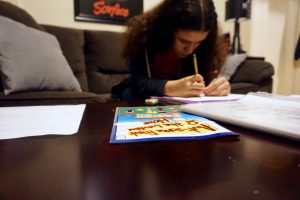
“When Madyson started writing the comic book, she did not know she had been diagnosed with Autism,” says Ruthie, an Evaluation Coordinator for Our Children First. “As Madyson began work on a page where the mother talks to her daughter about being different, I felt that was my cue to talk to her about Autism.
Soon after, Ruthie sat with Madyson at the kitchen table and explained that she was diagnosed with Autism at three years old. Madyson asked why she was never told. “I explained that we never told her because we did not want her to view herself as different or less than any other child,” says Ruthie. “I told her of all her progress.”
Giving others insight to her most guarded thoughts, Madyson took a risk letting people in. “I wanted to express my emotions,” says Madyson. “Writing them down is easier than holding everything in.” This is not just a story about a girl with autism. Her words are for anyone who has felt unworthy of kindness. Her words are for anyone who boxes in emotions to the brink. Her words are for the girl dreading the ride to school, or the boy thinking about standing up for a stranger.
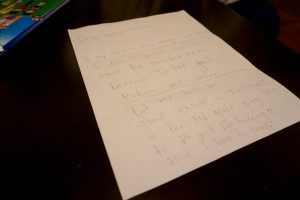
A few weeks after the publication, Madyson’s father ran into a friend whose eight-year-old daughter had read the comic book. His daughter passed on a letter to Madyson, sharing her love of the story and the impact it had on her. “When Aut-some Friends & The Lunchbox Heroes came out, many co-workers and their kids wanted to meet Maddy,” says her father. Starting out as a few words and sketches, Madyson’s work has transformed into story others see themselves as a part of. “I was scared to put it out there,” says Madyson, “but everyone should know that they are different in their own special way.”






